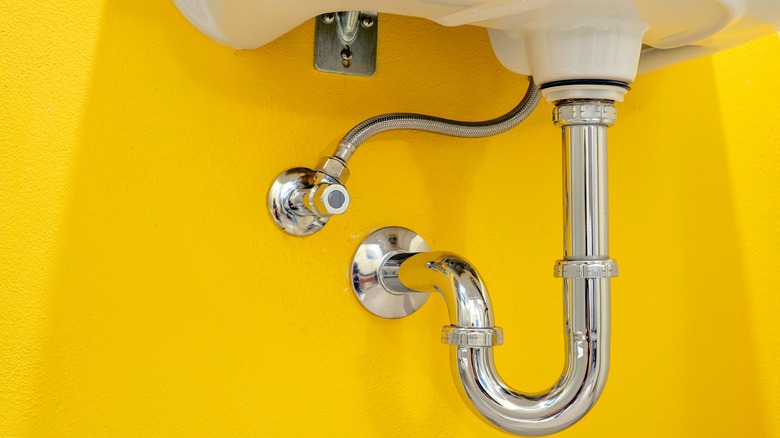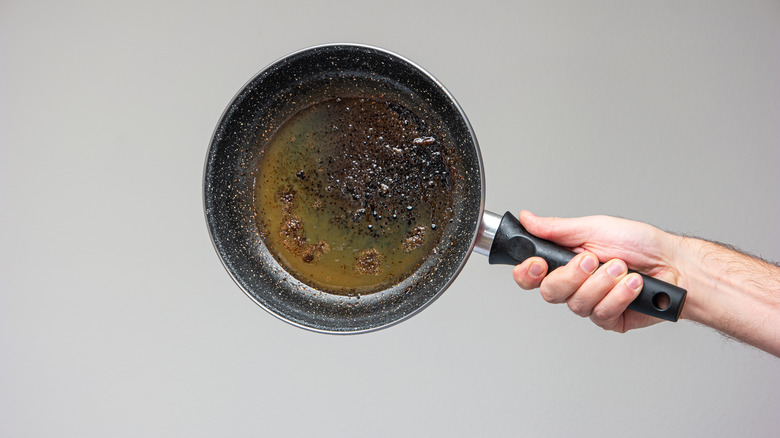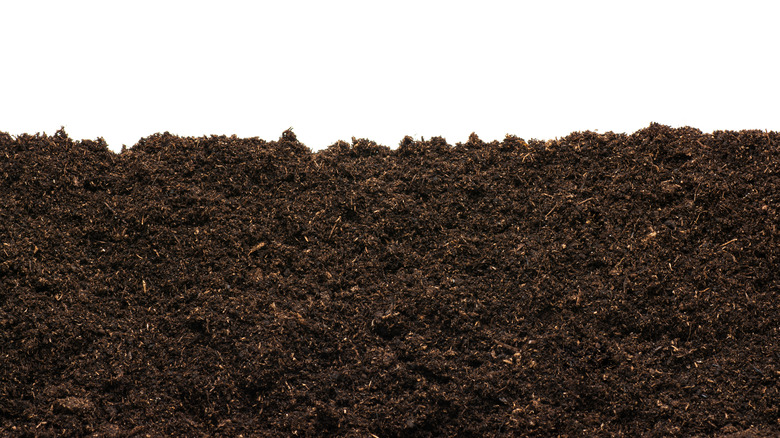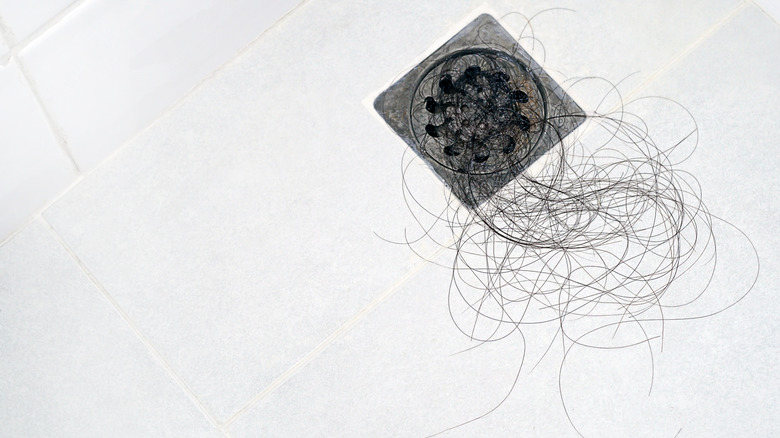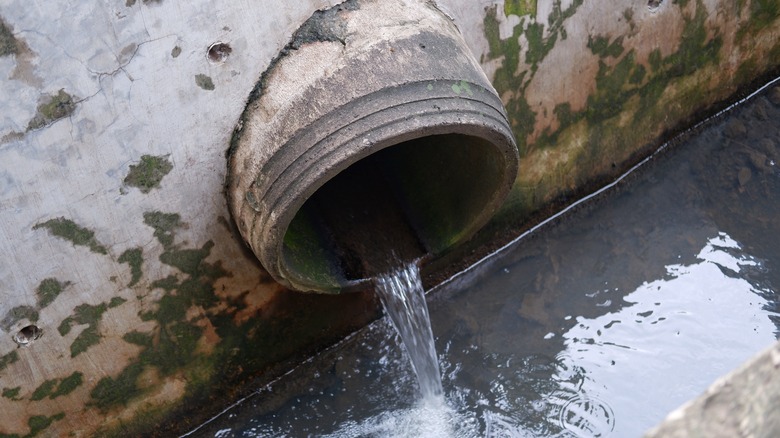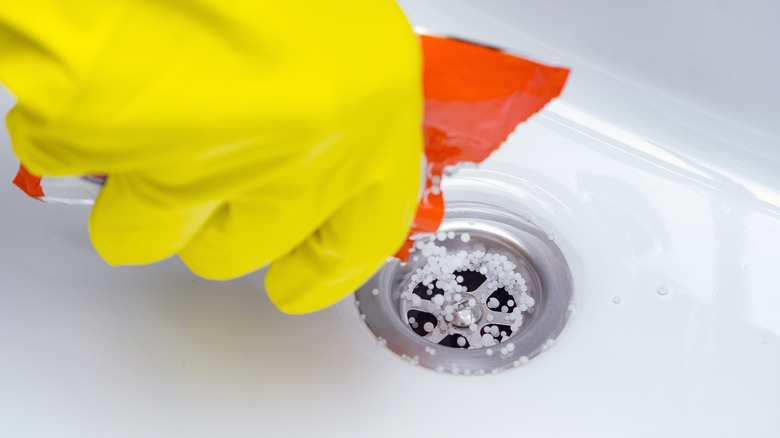5 Things To Consider If You Don't Want To Clog Your Drain
Drain blockages are a serious issue for homeowners and renters all across the country. Drains seem to clog at the most inopportune moments, leaving behind a pool of used water. No one wants to stand in a puddle while taking a shower, or deal with backed-up water in the sink while brushing their teeth, for obvious reasons.
Unfortunately, clogged drains are a common problem that seems to continue to plague modern society. Indeed, The Plumber Guy reports that attention should be given to your drains on a monthly basis to ensure proper functionality. While tackling the problem head-on is a great way to stop clogs in their tracks, understanding the primary culprits of a clogged drain can help you ward off the issue for much longer between cleanings or unblocker product application. Taking precautionary measures is critical when trying to prevent future drain blockages and can make all the difference when it comes to maintaining a comfortable and fully functional household.
Properly dispose of fats
Fats are a significant problem creator for homeowners worried about their drains. Fat, oil, and grease can easily become lodged in the drainage pipes running from the basin of your sink, creating a smelly mess that continues to bubble back out of the drain.
The Clayton County Water Authority reports that proper disposal of these substances is not only beneficial for your home and comfort, it's a critical responsibility that helps keep the community safe and secure. Clogged waterways eventually lead to massive buildup farther down the line, and over time, bits of trapped fatty or oily material will dislodge, flowing into a larger buildup found in the community sewage infrastructure.
One of the easiest changes that you can make in the home to prevent clogged drains is to practice intelligent fat and oil disposal (or storage for later use). Pouring off liquid fat into a container or makeshift foil cup will allow it to harden, allowing it to be easily dealt with. Alternatively, many people save solid fat for later cooking applications. Bacon grease, for instance, offers a fantastic means of flavoring potatoes and other vegetables.
Clean out dirt-filled containers away from drains
Dirt is another key source of drain blockage. Dirt won't easily break apart once it has found itself stuck within your pipes. While it's nowhere near as devastating a stopper as grease (which hardens and sticks in place,) dirt buildup in your pipes can lead to the same regurgitation of water from your drains.
Cleaning indoor potted plants with a hose in the yard, or wiping or rinsing off clothing and bodies that have experienced a muddy day on the sports field is an easy and important step to take here. Argo Drains notes that this problem is particularly grievous when it comes to external drainpipes. Downspouts that run water off of the roof and away from the home are notorious for becoming blocked up with heavy mud and leaf deposits. As a result, it's important to consider all the drainage features of your home when tackling this problem.
Dealing with hair
Hair blockages are particularly problematic in the shower, but this can present itself as a problem in the sink, too. Men and women alike shed hair naturally as they clean their bodies, and so shower drains are often forced to deal with a buildup of all different kinds of hairs (in terms of both type and length). As well, shaving in the shower provides another type of potential blockage that's flushing into the drainage system on a regular basis.
If your problem is primarily focused in the sink, an easy approach is to simply scoop out and flush or throw away as much of the leftover hair as possible. Keeping hair out of the drain will help reduce the volume of potentially obstructive material that finds its way into the drain. Modern Bathroom also suggests using a hair catcher in the shower drain and pouring boiling water down the drain once a month to loosen and pass any hair strands that may be sitting in the trap.
Investigate external sources
Sometimes, a pipe backup that is pushing water up through your drains is actually caused farther down the system and has nothing to do with your home's internal plumbing system, explains United Utilities.
Community sewers are designed to handle the incredible volume of wastewater that flows out of all the homes and businesses in an area. Sewers are carefully designed to handle loads from specified zones, but engineers don't always get these calculations correct. Similarly, a change in the ecosystem or environment of a place can lead to a greater runoff need than is possible. Flooding, for instance, can overload a sewer system in the short term.
If your home is experiencing drainage issues under normal weather conditions, and you've investigated sources of blockage within your home, it may be beneficial to ask around to see if your neighbors are having the same trouble. Ultimately, calling your utility provider for help with the matter is the best course of action if the blockage exists beyond the footprint of your home.
Use drain unblocking products
A drain unblocking agent can provide a fast-acting means of clearing trouble spots. Aspect reports that these products are most effective early on in the process of drain buildup. This is because a slow draining pipe still provides some access for necessary water and chemicals, whereas a totally blocked drain will require far more patience with only one end of the blockage exposed.
Chemical application is often a quick fix for clogged drains. For anyone with a recurring problem, it's a good idea to always keep a bottle of drain cleaning solution on hand, that way, you can tackle the gurgle of a slow-draining sink or shower immediately. Moving fast to remedy this problem whenever it presents itself will ensure that your property is always looking its best and providing you with the comfort and quality of life that you and your family want and deserve.
